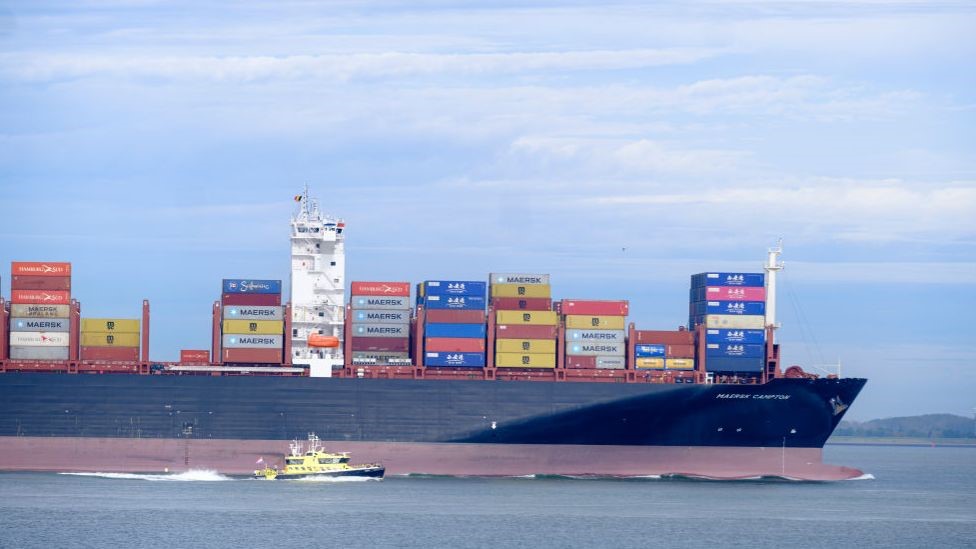Analysts have cautioned that attacks on commercial ships in the Red Sea run the risk of driving up the cost of products and oil.
After warships were assaulted by Houthi militants in Yemen, a number of businesses decided to stop shipping along the route.
Maersk, the second-biggest shipping company in the world, announced on Tuesday that it will divert a portion of its fleet around the Cape of Good Hope in Africa.
In response to the disruption, the US has begun an international naval operation to protect ships using the Red Sea route.
Operation Prosperity Guardian is a security initiative that the UK, Canada, France, Bahrain, Norway, and Spain are joining.
Additionally, the US has stated that it would be happy to see China take a proactive stance in attempting to stop new attacks.
The rebels threatened to keep up their attacks in the Bab al-Mandeb strait, a crucial shipping route connecting Asia and Europe, at the same time that the analysts issued their warnings.
Senior Houthi official Mohammed al-Bukhaiti declared on X, formerly Twitter, “Even if America succeeds in mobilizing the entire world, our military operations will not stop… no matter the sacrifices it costs us.”
- How have the attacks in the Red Sea affected things?
In a virtual meeting with foreign ministers on Tuesday, US Defense Secretary Lloyd Austin urged more countries to support security initiatives.
“These reckless Houthi attacks are a serious international problem and they demand a firm international response,” he stated.
According to the UK Ministry of Defence, security is “deteriorating” and the Royal Navy destroyer HMS Diamond will be joining the new task force.
One of the most significant shipping lanes in the world for consumer products, liquefied natural gas, and oil is the Red Sea. The Suez Canal is located in the north, and the Bab al-Mandab Strait, also referred to as the Gate of Tears, is located in the south, close to Yemen’s shore.
The Yemeni rebels stated they were attacking vessels they thought were bound for Israel, and the Houthis announced their support for Hamas in its conflict with the Israelis.
However, some companies, like Investor Chemical Tankers, claimed that their ship had no connections to Israel. Investor Chemical Tankers’ Swan Atlantic tanker was assaulted on Monday.
Shipping companies have received reports of drone and missile attacks on their vessels.
“The most difficult ones are actually the ballistic rockets. According to Campbell University naval historian Sal Mercogliano, “this is the first time we’ve ever seen ships hit by this type of weapon,” he told the BBC.
“It’s a very difficult type of missile to shoot down.”
Maersk stated that it was unclear when it would restart operations along the route and that it would evaluate matters on a case-by-case basis, even in light of the start of the global operation to guarantee safe passage through the Red Sea.
It expressed satisfaction with the efforts being made to bolster security in the region, but added that it was “still difficult to determine” when it will revert to the Red Sea route.
Hapag-Lloyd, a German business whose Al Jasrah ship was assaulted last Friday, however, hailed the new task force but insisted that it wanted 100% certainty that ships could return to the Red Sea safely.
The trip is extended by approximately 3,500 nautical miles using the alternate route, which circles the Cape of Good Hope.
We travel from the eastern Med to Singapore, Nils Haupt, head of corporate communications at Hapag-Lloyd, said to the BBC. The Suez Canal normally takes 13 days to traverse; if the canal is not used, it will take 31 days.”





